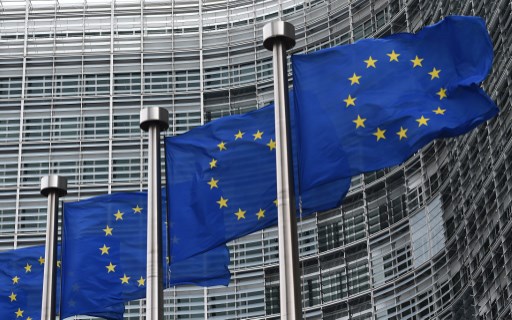Our submission for the European Commission Recommendations on the Safety of Journalists

Following the European News Media Forum, the Media Freedom Rapid Response (MFRR), including the European Federation of Journalists (EFJ), drafted a submission to the European Commission as part of their proposed Recommendations on the Safety of Journalists.
The EFJ contributed to the MFRR submission (see PDF below) providing information and recommendations to the European Commission concerning the safety of journalists and media workers. This will feed into a recommendation to the Member States announced in the European Democracy Action Plan, which will seek to ensure better and targeted implementation of a number of requirements set out in the Council of Europe’s Recommendation on the protection of journalism and the safety of journalists.
The EFJ, which was represented in the different panels at the European News Media Forum, which took place from March 23-25 by the EFJ President Mogens Blicher Bjerregård, the EFJ General Secretary Ricardo Gutiérrez and the EFJ Director Renate Schroeder, emphasised the urgent need to:
- Protect the economic, social and physical integrity in particular of freelance journalists, working on the front within an ever more precarious status. This should include Member States guaranteeing of social security schemes, training and collective bargaining for all journalists and media workers independent of their employment status;
- Give financial support to freelancers, local media and digital start-ups, who have been hit most during the pandemic;
- Increase national funding for public media;
- Provide direct financial support for daily and weekly newsrooms (direct, emergency subsidies to fund newsroom jobs at commercial outlets committed to local coverage; deferred or no-interest business loans; tax credits on newsrooms staff wages; household tax credits for paid subscriptions to local news outlets; increased EU or government public-service advertising in local outlets…). Subsidies will be distributed by an independent body, taking into consideration objective criteria (safeguarding of jobs in the newsroom, demonstrated loss of advertising revenue, endangered independent local media…);
- Set up EU and National News Innovation Funds to support new approaches to newsgathering, specifically at local or community level (EU Public Interest Media Endowment grants to support independent, community-based, investigative journalism and news start-ups, among other innovations (these funds could be sustained through a 2% tax on targeted online ads on online platforms).
The EFJ defined six recommendations:
- Member States (MS) should work on strengthening their social security schemes in order to ensure protection of journalists in case of unemployment, illness, and professional risks, independent of their employment status;
- Social security schemes should entail the right to paid holiday as job protection and benefits are not dependent on employment status. Paid holiday is an important social right and going without breaks can threaten your health, in a time when mental health problems are on the rise;
- Member States should guarantee training on (digital) and physical and mental safety for all journalists independent of their employment status, and in particular for freelance journalists; training – if possible within university curricula should include new ways of financing journalistic work;
- MS should oblige employers to allow freelancers and self-employed journalists and media workers a written contract with fair terms and rates and fair remuneration from authors’ rights, prompt payment and equal treatment at work in terms of health and safety;
- The EU and MS should make collective bargaining for freelancers and self-employed workers possible and prevent EU competition law to stand in the way, see ongoing public Consultation (https://ec.europa.eu/commission/presscorner/detail/en/ip_21_988)
- Any support mechanism should be user-friendly, not bureaucratic, transparent and reflecting the specific, often precarious framework freelancers work in. Solidarity funds should support at arms’ length innovative stories to be produced by (freelance) journalists.
The Forum and the Recommendation are part of a broader set of actions to address the threats to media freedom and pluralism in the EU, and to journalists in particular, together with an initiative to curb the abusive use of lawsuits against public participation (SLAPPs). This is also linked to the Action Plan to support recovery and transformation of the media and audiovisual sectors in the EU.






